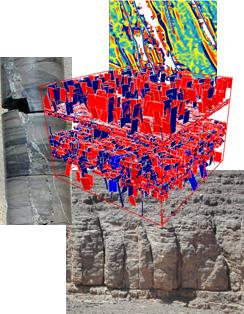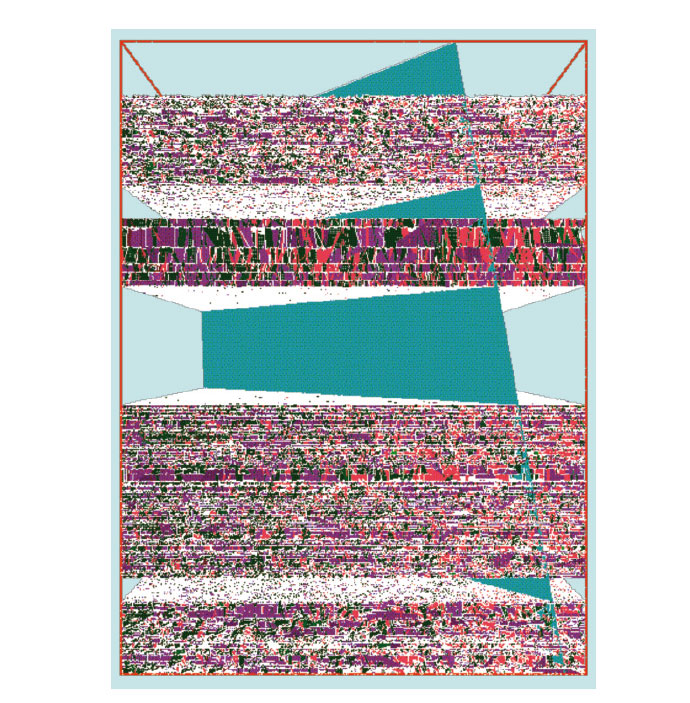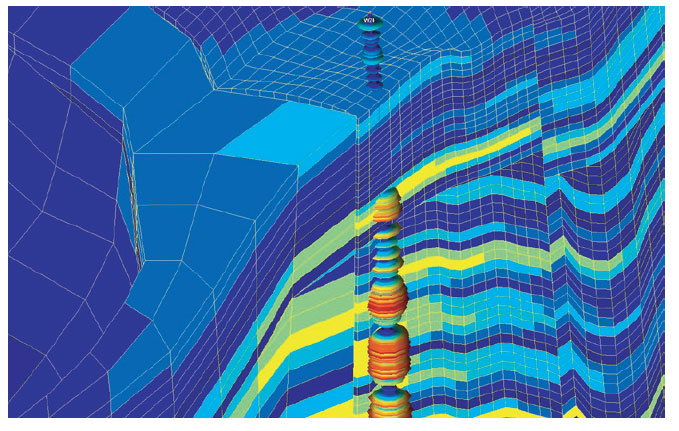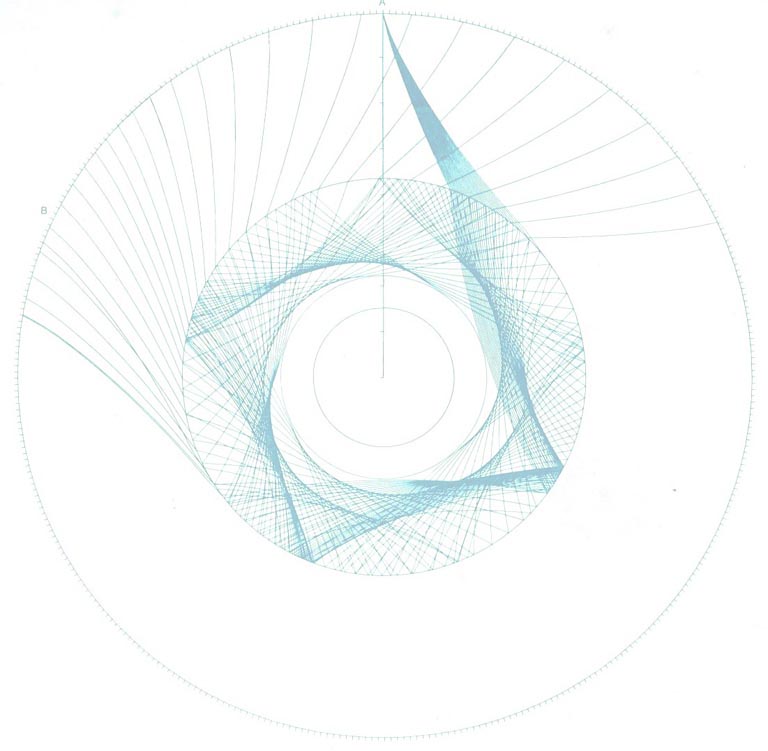Geosystems Engineering
| HOME | PETROPHYSIK | SEISMIK | GEOMECHANIK | DYNAMIK MODELL | ANALYTISCHE METHODEN | EXPLORATION | NEWS | KONTAKT | UEBER UNS |
STATISCHES GEOLOGISCHES MODELL
Das statische Geologische Modell ist das Endstadium des Entwicklungs-Workflows der
räumlich zugeordneten Datenbanken, bestehend aus seismischen, petrophysikalischen
und strukturellen Attributen, die aus allen Meß -und Interpretationsverfahren stammen.
Das Ziel eines statischen Modelles ist, die tomographische Auflösung mit immer neuen
Eingangsdaten zu verfeinern, um die Studie für die Auswahl der Target -Area zu
realisieren.
Zweites Ziel ist, die Architektur und Basisstruktur für die dynamische Simulation
vorzubereiten, indem auf der Basis der petrophysikalischen und strukturellen Parameter
die dynamische Simulation von Fließrate und thermischer Entwicklung im 4-Dimensionalen
Raum implementiert wird.



Courtesy Beicip-Franlab

SERVICES
Enhanced Seismic Visualisation
Logs positionierung und display
Heterogeneität -und Strukturmodell
Gridding
Schichtbildung Auswertung
Zonenbildung
Petrophysikalische Upscaling
Eigenschaftenmodellierung
Faciesmodellierung
Geostatistische Simulation
Conventional Estimation
Conditional Simulation
Grid Based Simulation
Object Based Simulation
_______________________________________
VIDEO
_______________________________________
Petrophysic-Consultants
ist FRACA-FLOW benutzer.
FRACTURED RESERVOIR CHARACTERIZATION and MODELING
Das mächtigste Modellierungprogramm für geklüftete Karbonaten.
FRACTURE ANALYSIS
The objective is to analyze and understand the “fracture signature”
by the exhaustive review of available input data (well logs, borehole
imagery, 2D/3D seismic attributes, well tests) and interpretations.
FracaFlow provides:
• Improved geological data analysis:
fracture analysis, structural analysis and fault geometry analysis
• New dynamic data analysis:
flow meter analysis, permeability analysis, PI analysis, mud loss
analysis, production data analysis
• Density log computation and 3D density controllers:
an advanced way to compute fracture density logs and enable the building
of a 3D density driver based on multivariate non-linear statistics
• Integration of seismic, stratigraphic and production data
FRACTURE MODELING
The goal is to build a 3D geological model of the fracture network
consistent with the fracture data analysis.
FracaFlow provides:
• New methods of building a DFN (Discrete Fracture Network) to
model corridors and joints:
sub-seismic, stratabound and non-stratabound
• New model types: by region, fault-related, user-defined, grid-based
UPSCALING OF FRACTURE PROPERTIES
The goal is to reduce the complexity of the actual fracture system to a
few relevant equivalent parameters (at the scale of the reservoir
simulation cell scale).
FracaFlow provides:
• Computation of equivalent fracture network parameters (permeability,
block size) locally or at full field scale, using analytical and numerical
methods, required for single or dual media simulators
• Export of FracaFlow output for direct use in reservoir simulators: PumaFlow
or third-party software.
CALIBRATION OF FRACTURE PROPERTIES
The challenge is to calibrate the fracture model to dynamic data using
Kh, PLT and well test information.
FracaFlow provides:
• Automatic Kh calibration
• Dynamic tests simulation on DFN and optimization loop
FracaFlow is supported by oil companies including
ADNOC (Abu Dhabi), ENI (Italy), INA (Croatia), KOC (Kuwait),
LPI (Libya), NIOC (Iran), Petrobras (Brazil),
Petronas (Malaysia) and Statoil (Norway).
FracaFlow is a totally integrated, user-friendly fracture
modeling package enabling geologists and reservoir engineers
to understand better the impact of fractures
and their associated uncertainties.
FRACA is a Mark of BeicipFranlab